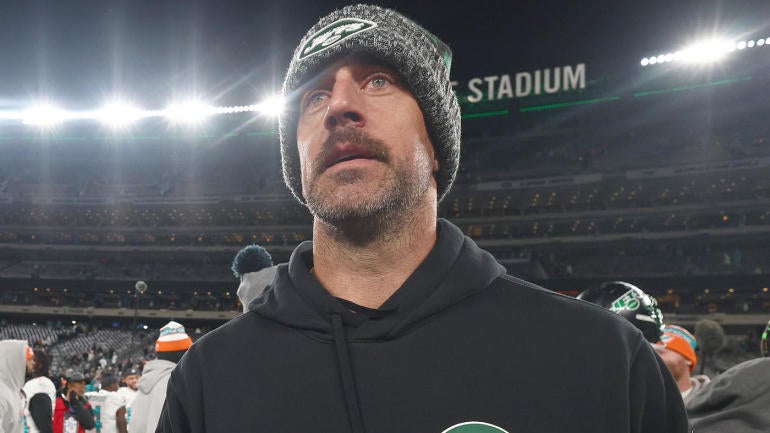
Aaron Rodgers returned to Jets practice Wednesday, less than three months after suffering a torn Achilles. It's the next step in an unprecedented recovery effort from the 39-year-old quarterback, who told reporters Thursday that it's "possible" he'll return to game action in the coming weeks, while cautioning that New York needs to remain competitive to justify his comeback.
Rodgers admitted he is not close to being ready to play, per ESPN, but left the door open for a return prior to Christmas Eve, the date of the Jets' first game following his three-week practice window.
"Anything is possible," he said, adding that he doesn't believe "it would make sense" to take the field if the Jets are eliminated from playoff contention before then.
CBS Sports HQ Injury Expert Marty Jaramillo believes Rodgers' medical team "will hold their breath if he comes back," and that Week 16 remains the most likely date for a return.
Designated to return from injured reserve, Rodgers has 21 days to be activated, or else he'll be required to miss the remainder of the 2023 season. The QB has said repeatedly he's ahead of schedule in his Achilles rehab, reportedly targeting the Christmas Eve matchup for a return.
"His recovery is on pace to slash traditional rehab protocols by (more than) half," Jaramillo told CBSSports.com Wednesday. "Week 16 would be four months from surgery. At minimum, it's typically eight to 12 months. At the end of the day, he is in charge, and (his) medical team is letting Aaron do his thing with key constraints."
If Rodgers isn't ready to play in Week 16, Jaramillo believes "there is zero upside for him (playing) this season." By that point, the Jets (4-7) could be as good as 7-7 or as worse as 4-10, which would likely leave them outside the playoff race. And if Rodgers is serious about returning for a full 2024 season, it's probable that staying sidelined and slowing down the rehab process could be beneficial.
"He is pushing biology as far as it can be pushed," Jaramillo said. "But for those of us in sports medicine, we know biology can fight back."


















